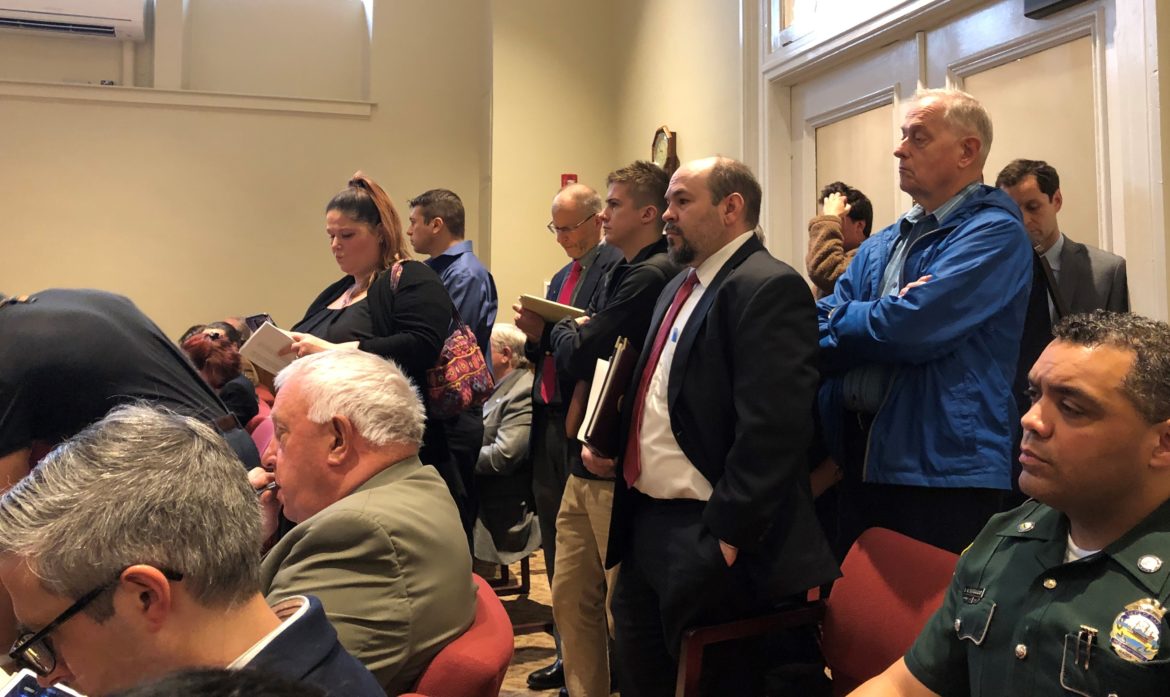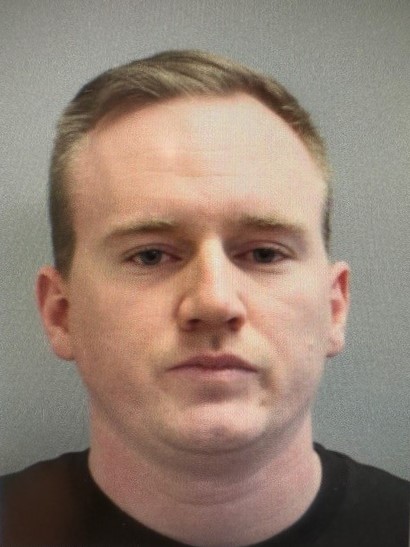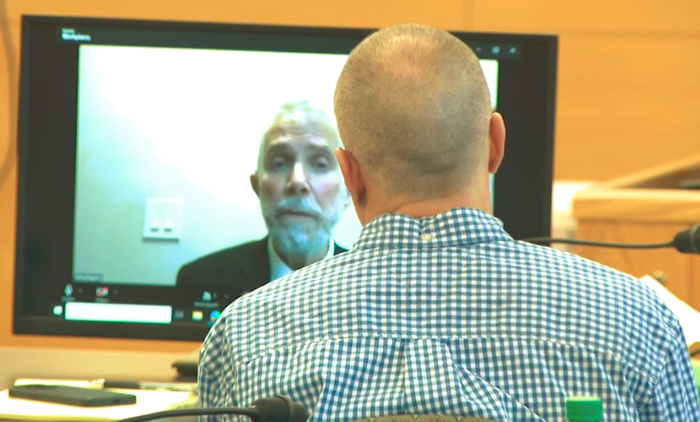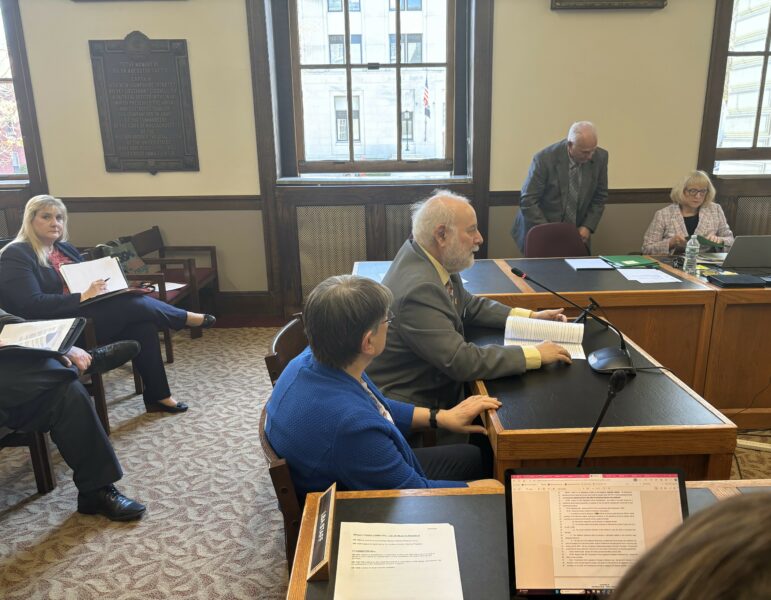By PAULA TRACY, InDepthNH.org
CONCORD – Legalizing marijuana “is all about the money,” opponents insist, while those in favor said a bill now advancing in the legislature is about ending a failed, 85-year policy on pot prohibition.
House Bill 481, passed the House on a vote of 200-163. Testimony was heard Tuesday before the Senate Judiciary Committee. Republican Gov. Chris Sununu has vowed to veto it.
Forty people signed up to speak at a hearing before the Senate Judiciary Committee Tuesday, with opponents outnumbering supporters. The committee heard half of the speakers in three hours and agreed to reconvene on May 7 at 9 a.m.
A 2017 University of New Hampshire poll shows that 68 percent of New Hampshire residents support legalization, supporters said.
Sponsor Cushing
Rep. Renny Cushing D-Hampton, sponsor of the bill, said when he was a kid growing up in Hampton it was a “dry town.”
“Times have changed,” Cushing said, and now alcohol flows freely from Smuttynose Brewery and liquor stores on the interstate.
Similarly, the war against marijuana, which began in 1935, has failed, Cushing said, adding this is a comprehensive bill to legalize, commercialize, regulate and tax cannabis.
The bill contemplates the issuance of retail sales, licensing, transportation and testing for consumers, who he argued will be protected from additives that are possibly contained in the black-market drugs.
The bill would allow local governments to choose whether they want to regulate or prohibit cannabis facilities in their communities. Cushing said it will also create an enforcement division to oversee regulations and impose penalties.
As amended by the House Ways and Means Committee, the bill would tax cannabis at 5 percent at the wholesale level and 9 percent at the retail level. Revenue estimates by the state range from $19 million to $31 million a year.
While it is still illegal at the federal level, 20 percent of the residents of the country live in states where it is legal, Cushing said. New Hampshire is surrounded by states that have legalized and this bill “places us well below tax in other states.”
One-third of revenue from pot sales will go to the state departments of Health and Human Services and Safety and programs that deal with impacts on public health and substance misuse disorders across the board, while another third will go to local communities to help relieve high property taxes, Cushing said.
“It’s a really good bill that fits New Hampshire,” Cushing said.
Sen. Melanie Levesque, D-Brookline said she does have some concerns and questions about the bill. She asked about the timeline.
Cushing said the target date would be to issue licenses next spring and commercial retail sales in the fall of 2020. She asked about federal regulations and Cushing said there are efforts in Congress to change those.
‘About the money’
Sen. Bob Giuda, R-Warren led the opposition to the bill and brought some out-of-state experts to testify as well. He hosted a press conference prior to the hearing with the takeaway message: “It’s all about the money.”
Giuda said he visited Colorado recently and met with narcotics investigators. The tour included Denver’s 16th Street Mall which he considered “a third-world country, picture Manchester or Nashua, because that is what it will be.”
In Colorado after five years, 70 percent of communities have outlawed sale, he said. It has increased traffic deaths, encouraged a black market and increased emergency room visits, Giuda said of legalization.
He noted that marijuana is 60 times more potent than it was in the 1960s, and for that reason, it has become more of a danger.
“We have decriminalized marijuana in our state. No one is being arrested,” he argued. “Medical marijuana does have a place,” and Giuda said he supported that legislation.
Jeanne Hruska, political director for the American Civil Liberties Union of New Hampshire, said ACLU is in support of the bill from a criminal justice reform perspective.
Hruska said there are racial disparities in incarceration rates for people of color. It also impacts disproportionately on housing and college funding.
Susan O’Brien of Sharon said she suffers from two very painful conditions and a doctor has told her cannabis would be best for her pain relief. Yet she said she has heard about people rejected for medical marijuana in New Hampshire.
“Please move this bill forward,” O’Brien said.
Bishop Jethro James of Newark, N.J., chaplain for the New Jersey state police, who helped convince that legislature to halt the advancement of legalization efforts, said it is a misnomer that people of color are disproportionately incarcerated for cannabis conviction.
“This is about greed and money,” James said.
James said he is concerned about the lack of child-proof locks for protecting children from the drug. In public housing, pot smoking is a cause for eviction. Because it is federally prohibited, New Jersey residents can also lose their food stamps for up to five months.
Bedford Police Chief John Bryfonski, speaking on behalf of the state chiefs of police association, said the organization is adamantly opposed to the bill.
“This is about the debate to legalize and promote another intoxicant,” Bryfonski said. “Pay attention to science. Pay attention to the data.”
Jim Karwocki of Sanbornton said, “if smoking kills you and gives you heart attacks I should have been gone long ago. “By legalizing pot, we would have money to educate people and keep it away from children, he said.
Annika Stanley-Smith, of the Capital Area Public Health Network, opposed the bill. Money for education is not enough reason “to dig us out of the hole we are digging,” she said.
Margaret Drye of Plainfield, an emergency medical technician, said the “people who pick up the pieces in this state are against this bill…especially in the midst of an opioid epidemic.”
She said the bill does not identify a standard for impairment while driving. “It’s obvious we need a standard,” she said.
Dr. Christine Miller, a neuroscientist who has spent her career studying impacts of the drug, said New Hampshire can expect to see far more cases of schizophrenia and psychotic disorders if cannabis is legalized.
“It’s a very expensive illness,” she said of schizophrenia.





